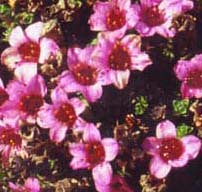Are scientists and journalists an impossible match?
When ScienceWoman re-posted this yesterday I had flashbacks to countless conversations with bright and otherwise well-informed people misunderstanding the basics of what I do due to flawed presentation in the media. I don't think I am in the same field as ScienceWoman (if we are, we are definitely in different parts of the field), but I think it might be close. Let me just say that my field is related to envronmental issues that reaches the headlines on an almost daily basis.
While I realize that there are many excellent science jounalists, who do a great job in informing the general public about complex and often contradicting scientific results, there is also a LOT of poorly explained or downright wrong information out there. As is the case with the Coca Cola commercial and it's polar bears and penguins living together in harmony it is often the very basics that are mixed up. I tend to believe that no one is confusing anyone on purpose, but that journalists often just don't have the necessary understanding of the topics and that we as scientists are often not good enough at explaing what we are doing, what the conclusions are based on, why there are contradictory opinions out there and why it might take years and years to reach or concensus or advance our general knowledge. This is all old news and many good initiatives are arising to advance to public knowledge and understanding of science, but then it apparently stops.
Recently my research group got a big grant. The proposed project was ranked highly by the evaluation committe because we suggested to have a very close collaboration with information officers at science centres and to bring journalism students directly into the project. The idea was that journalism students should take part in the field work, the data analysis and generally follow the process in order to provide future science journalists with the necessary background about how research is done and what it is all about.
Today I went to the first meeting with the journalism college faculty to figure out how this could be done in reality. The enthusiasm was surprisingly low. They offer courses in science journalism, science writing and environmental fields, and one would think, it could be nice for students taking these classes to actually be put in contact with real life scientists. But rather than jumping at the opportunity (which is already funded) they seemed very reluctant. They worried how this would fit into the curriculum and general teaching plans, whether anybody would be interested at all and, perhaps most thought-provoking, whether we would try do steer the students in one particular (political) direction and away from critical journalism! This is where I realized that if anybody needed this program, it would be the faculty thinking that all scientists do is to make themselves look good.
I don't really know what to think about this. They are onboard and the program will happen, but I suddenly think we have come a much shorter way in bridging this gap between science and public knowledge than I used to think. The biggest impression this place left on me was that they felt so self-sufficient and seemed to think that they offered an excellent curriculum in science journalism (which they probably do), but that they didn't want us to come and interfere with that. As if meeting the scientists would be more of a problem than a benefit to the people who will be giving us tomorrow's news.



0 Comments:
Post a Comment
<< Home